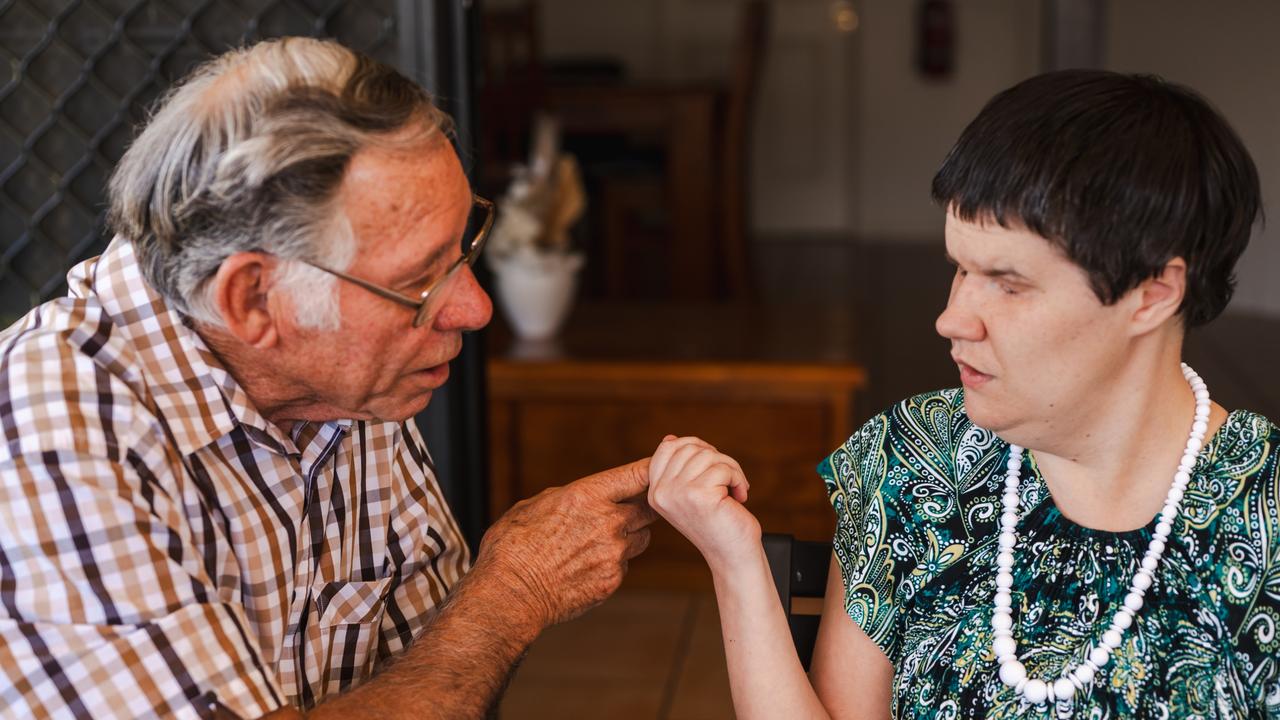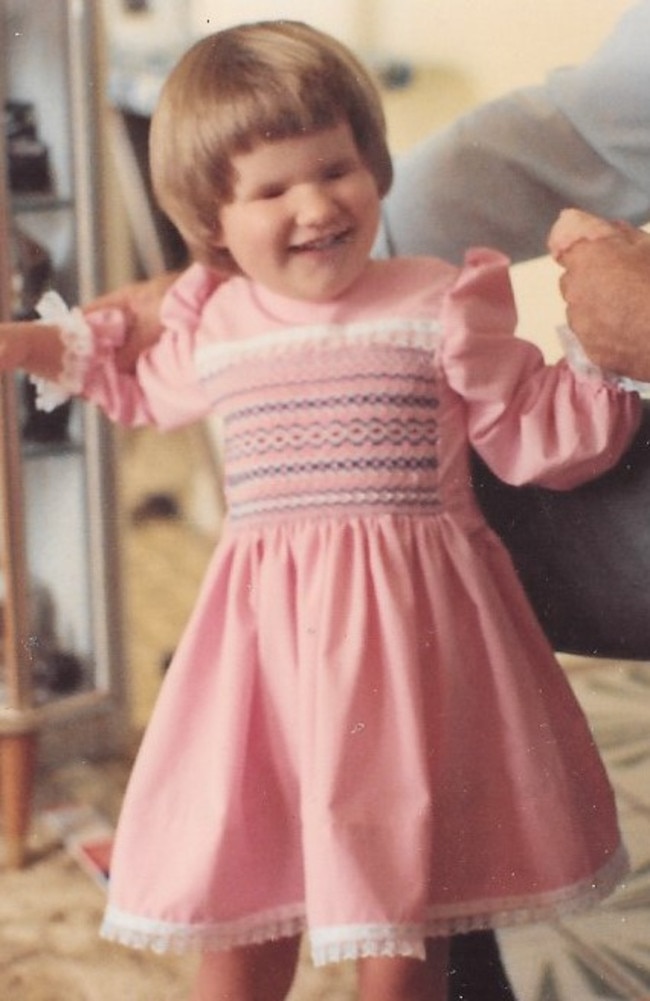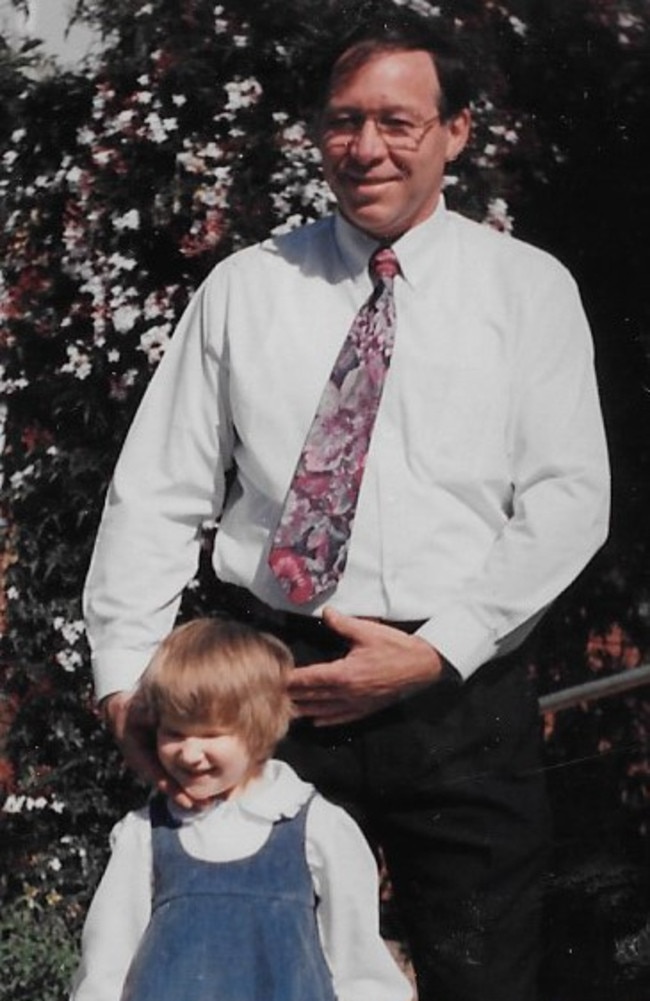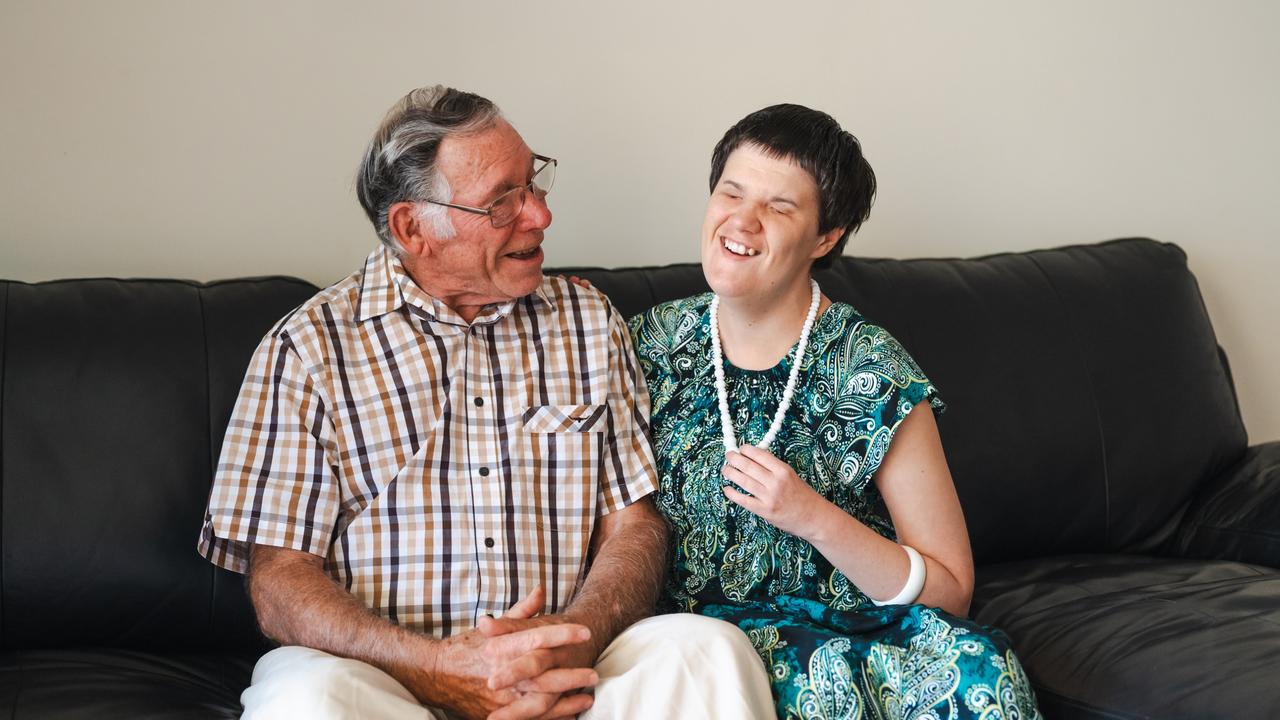Born without eyes: A girl’s journey to her forever family
Tanya Shadbolt was facing a difficult life until one man’s split-second decision changed it all. Read of his family’s incredible devotion.

Toowoomba
Don't miss out on the headlines from Toowoomba. Followed categories will be added to My News.
Eric Shadbolt was besotted by his adopted daughter Tanya from the day he first read about her in the parish newsletter some thirty years ago.
“They wanted someone to foster, they needed someone in a hurry,” the Toowoomba father said.
“I don’t know why but I just thought ‘we’ve got to take this little girl’.
“I dropped it on my wife at the end of the church service, I said, ‘I think we should do this’.
“Comes the Wednesday week they just rang us up and said, ‘the court order is ready and Tanya will be there tomorrow’.
“It’s been over 30 years now.”
Tanya Shadbolt was surrendered by her birth parents at two.
She was the youngest of four children, all under five, and given up to the foster care system.

Born with a rare congenital disorder, she was left without eyes.
A cleft palate made eating and speaking a daily challenge, and she struggled with severe intellectual impairments.
Eric and his then-wife were approaching their fifties, with two adult sons of their own, when they decided to take on the little girl.
“It was a real challenge from the start,” Eric said.
“She was only on the bottle, didn’t sleep very well, wasn’t toilet trained.
“But my wife was very capable and very able to work with Tanya.
“We had a lot of different things happen over the time but she came into her own pretty quickly.”
Eric recalled the early days with Tanya, both parent and child learning how to be with one another.

“We spent most of the nights wandering around trying to get her to sleep,” he said.
“We had been told the way to get her to sleep is to put her in the tub.
“She would have a bath and it would warm her up and get her nodding off better.
“That’s where she learnt how to swim, was in the bath.”
LOVED TO CLIMB, REALLY ATHLETIC
The pair fell in love and eventually adopted Tanya, officially bringing her into the family.
Tanya, now 36, went on to become a keen sportswoman, never letting her disabilities stop her from living life.
“When she was little she loved to climb, it didn’t matter what it was,” Eric said.
“She was really athletic.

“She was phenomenal on the trampoline … she would sit up on my shoulders and, I think because of the trampolining, she would be able to drop down my back and sit back up again.
“Even to today, she enjoys her life the best she can.”
But their family may never have eventuated if Eric listened to those around him.
“The court clerk when I went to pick up the papers said ‘don’t do it, don’t do it, it will ruin your life’,” he said.
“Imagine that.
‘SUCH AN EASYGOING GENTLE SOUL’
“She is such an easygoing, gentle soul.
“I told him ‘everybody’s got to have a fair go’.
After the passing of Eric’s first wife, the family grew again when Eric met the wonderful Estelle – a woman who would welcome Tanya into her heart and care for her without a moment’s hesitation.
“I’ve had 14 years as her mother,” Estelle said.
Eric said his wife had been a “real backstop”.
“I always say she took on all of us: me, Tanya and the dog,” he said.
Now coming into their late 80s, Eric and Estelle faced the difficult decision to transition their daughter into full-time care.
“We both get a bit emotional now we don’t have her with us,” Estelle said, her voice choking up.
“Many tears shed over that, there probably still is more to come,” Eric said.
‘WE WANT TO BRING HER HOME AGAIN’
“You want to bring her home again, you think ‘we can keep doing this’ but we know we can’t.
“When you speak to parents about the situation, it’s the one big fear for everybody.
“What’s going to happen to my child when we’re too old to look after them?
“It’s a real, real worry; you don’t want to come to that point, you don’t want to give up that last little bit.”
In April, Tanya found a home at Multicap Supported Independent Living with a team she had grown to trust while visiting their respite care facility.
“We thought it was better for her to have someone she knows care for her then wait until we’re gone,” Estelle said.
Eric said there was “somewhere for everybody”.
“You’re doing what’s best for your child, and your relationship with them remains strong.
“It’s a significant transition, but it doesn’t reflect your love as a parent.
“They will always know how much you love them.”








